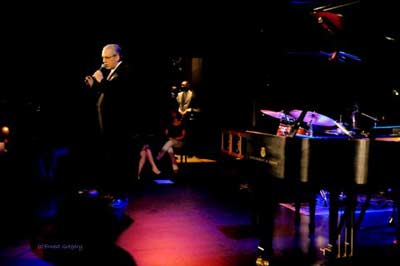
AN INTERVIEW WITH TODD BARKAN
JAZZ AFICIONADO... IMPRESARIO ... RECORD PRODUCER...
AND PROGRAMMING DIRECTOR OF DIZZY'S CLUB COCA-COLA
Todd Barkan, jazz historian, raconteur, producer and artistic director, has had a passionate love affair with music for most of his life. He is well suited for his current gig as the Programming Director of Dizzy’s Club Coca-Cola, a vital component of Jazz at Lincoln Center . . . and one of the best and most famous jazz clubs in the world.

Not too long ago, I sat down with Todd to chat about the many influences and bouts with fate that have inspired and propelled his amazing journey through the world of jazz over the past four decades.
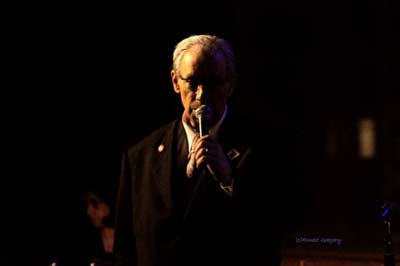
Since 1975, Barkan has produced more than 1000 award-winning recordings for American, Japanese and European record companies by artists such as Art Blakey, Bill Evans, Rahsaan Roland Kirk, Jimmy Smith, McCoy Tyner, Grover Washington, Jr., Gloria Lynne, Hank Jones, Roy Haynes, Joe Lovano, Phil Woods, Bill Charlap, Freddy Cole, Chico O'Farrill, Dr. Lonnie Smith, Kenny Barron, Jeff Watts, Red Garland, Lou Donaldson, Cedar Walton, Eddie Harris, Tommy Flanagan, Jerry Gonzalez & The Fort Apache Band, Ravi Coltrane, Bud Shank, Jimmy Scott, Kenny Kirkland, Bobby Hutcherson, Dexter Gordon, Tete Montoliu, Cyrus Chestnut, Benny Golson, Eric Alexander, Mose Allison, Renee Rosnes, Joe Locke, Eddie Henderson, John Hicks, Paul Bley, Mongo Santamaria, Barry Harris, Manny Oquendoy Libre, Lewis Nash, Shelly Manne and Steve Kuhn.
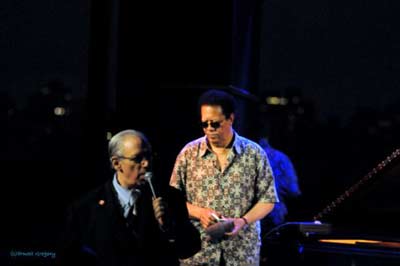
For his role as producer, Barkan has received two dozen GRAMMY® nominations in the U.S. and won several GRAMMY® awards, the last of which was for his work on Bebo de Cuba by Bebo Valdes. Recordings produced by Barkan have also received over 35 "Gold Disc Awards" for artistic excellence from the Japanese Swing Journal.
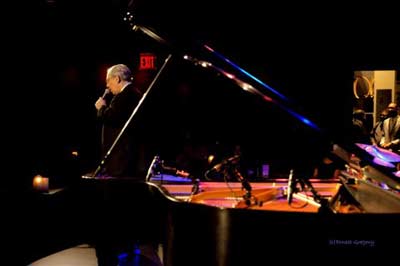
Todd has lived a life that spans many continents .. . . he has many poignant memories to treasure and share . . . and is blessed with the loyal friendship of music legends and jazz fans he has met, befriended and supported . . . professionally and personally.
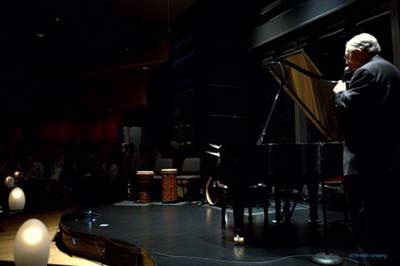
BD
Todd, tell me how and where your life long love affair with jazz began?
TB.
After graduating from Oberlin College in Ohio, I headed to San Francisco in 1967 as a young hippy. I always loved jazz; I played the piano. Once there, I continued to do so with various musicians; I frequented all the Blues Clubs looking for work. In 1972, I went after a gig in a North Beach Beer Bar, but the owner told me he didn’t like or book jazz. However, he did offer to sell me his bar for $12,500. All I had in life savings was $8,000; we negotiated back and forth; he agreed to take a down payment of $5,000, and I agreed to pay him $400 a month until the balance was paid off.
BD
Did this leap of faith, and fate, pay off?
TB
I created Keystone Korner, as a jazz only venue; I was not only the owner but also the artistic director. We gained International recognition as a legendary jazz club; Dexter Gordon and Stan Getz called it “the best jazz club in the world”; Mary Lou Williams dubbed it “the West Coast Birdland of the 70’s”. All the artists went there . . . played there; it became known around the world. I stayed with it for 11 years. During this time I produced dozens of live historic recordings, but the club never made money; it was definitely a labor of love; I used to have to borrow money to keep it going. Then when the landlord raised the rent in 1983, I couldn’t afford to renew the lease.
BD
What turns did your life take after you were forced to close Keystone Korner?
TB
New York is the Jazz Center of the Universe; I moved back in 1983, continuing to represent artists and produce for 12 labels; from 1985-1990, I also worked as Company Manager/Artistic Director of the Boys Choir of Harlem, building the first worldwide touring schedule for the group and helping to develop important artistic collaborations between the Choir and jazz and classical artists such as Kenny Burrell and Kathleen Battle.
BD
Have you booked artists for clubs in other countries?
TB
Between 1990 & 1994, I traveled to Japan three or four times a year, booking artists for the Keystone Korner Jazz Club in Tokyo.
BD
Considering your extensive repertoire of award winning recordings, is there one you are especially proud of, even humbled, to have produced?
TB
I am proud of all the recordings I have worked on, and of course I have favorites, but producing a Chico O'Farrill Latin jazz soundtrack for the 1999 remake of "The Thomas Crown Affair" with Pierce Brosnan and Rene Russo was a special honor.
BD
What brought you to Dizzy’s Club Coca-Cola?
TB
I had known Wynton Marsalis for 20 years, since he was a young trumpet player with Art Blakey and the Jazz Messengers; they played at my club. We were colleagues and friends. Remember I was in the jazz world in San Francisco as a club owner from 1972 to 1983; we stayed in touch, In 2000, I became President and Creative Director of 32 Records in New York City; I was on the West Coast mixing a Jimmy Scott album for Fantasy Records when Wynton called and asked me to come work for him. From 2001 through 2003, I worked as Artistic Administrator; then when Dizzy’s opened in 2004, I became the club’s Programming Director.
BD
You have played a nurturing role in building Dizzy’s Club Coca-Cola into one of the most famous jazz clubs in the world, as you did with your first jazz club venture almost 38 years ago. You have traveled far and have much knowledge and affection to share. You also introduce every performer with devotion, great respect, and as a special friend. Is this part of your role as Programming Director?
TB
As Programming Director, I identify and book each and every artist, bringing in 175 bands a year. Drawing on the relationships I have developed with American and International musicians over the last 40 years, I am able to call upon them, negotiate the best possible prices, and showcase them with integrity, in a warm loving environment, and to an audience of enthusiastic appreciative fans.
I introduce every performer because I take great pride in my role at the club, and what we have accomplished in six years. We present great jazz in an intimate atmosphere, with sweeping views of the most famous park in the world. I work hard to create a personal connection between artists and audience. not everyone comes into the room with the same level of interest in jazz; my intent is to have them leave with just a little more passion and appreciation for music.
BD.
How would you rate Dizzy’s with other jazz clubs?
TB
It’s not my style to give it “the best”, but it does have a reputation for being one of the best in the world.
BD
What is your greatest challenge as Programming Director of such a prestigious and well endowed entity?
TB
Keeping a level of consistency, excellence, and as high a quality as possible. When things work, we tend to repeat; here we try to make it even greater all the time. The biggest challenge is keeping creative energy flowing with as much productivity as possible. We have a high overhead and need fund raising to keep our overall facility financially able to meet our standards.
BD
What is your relationship with Wynton?
TB
Wynton is the guiding light; we’ve learned and taught each other a lot; we share a dedication to music that swings. I’ve brought 45 years of working with artists and loving care to Jazz at Lincoln Center. It takes hard work, tireless dedication; and a lot of love and decency, not only to play jazz, but also to present it in the most loving, warm and welcoming environment as possible. Something I share with Mr. Marsalis.
BD
What is your personal philosophy that you share with your audience before every performance?
TD
Take care of the music and the music will take care of you.
BD
What does jazz mean to you, and how does it influence your life?
TB
Jazz music is honesty, integrity and profound beauty in a world that is very hard for me to understand
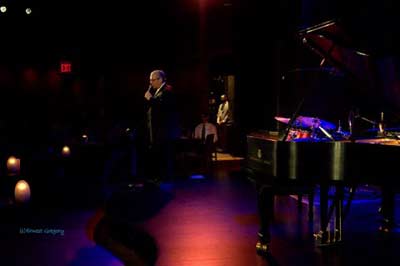
BD
What about a book based on your rarified world of jazz?
TB
I’ve done 30 or 40 hours of interviews, but nothing has ever come of it.
BD
Is there a cover charge at Dizzy’s?
TB
On Mondays there is a $20 cover; Tuesdays, Wednesdays, Thursdays & Sundays, the cover is $30 and on Fridays and Saturdays, its $35.
We do have a student admission for certain sets.
BD
What about a minimum?
TB
Its $5 at the bar and $10 at a table
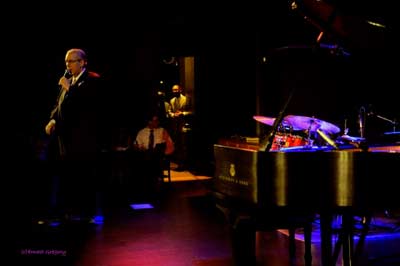
BD
What about the food menu ? I had the fried chicken; it was delicious.
TB
Great Performances runs our kitchen; we serve comfort foods; the prices are very reasonable; our southern dishes like fried chicken and oversized burgers are quite popular. .
BD
What does the future hold for you and Dizzy’s? What about opening a Dizzy’s, say in Japan or China?
TB
I plan to stay here as long as I can; Another Dizzy’s; that’s a dream; perhaps one day it could be franchised.
BD
Can you share a special moment that has left an indelible imprint in your mind and your heart?
TB

In 1975, I was touring Australia with Rahsaan Roland Kirk and the Vibrations Society; he was my music mentor. While in Melbourne, we went to see the koala bears. Rahaan was inspired to take out his flute and play to the animals. Suddenly, as the notes filled the air, birds from as far away as we could see came and lit on the trees. It was one of the most moving sights and experiences of my life, to realize the vibrations and sounds from his flute, like the pied piper, had summoned an audience of hundreds of birds.
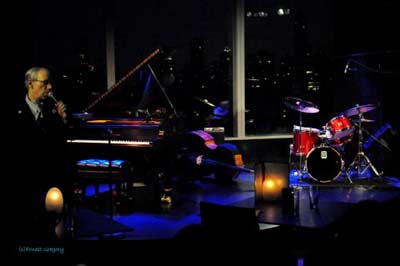
Todd Barkan, has had a profound impact on the world of jazz, Dizzy’s Club Coca-Cola, and the artists who rely on his integrity. He was married to his career until he met and married his beloved Ilene ten years ago, with Glover Washington, Jr. as his best man. Now with Ilene by his side, Jazz is the mistress who continues to satisfy his burning insatiable passion for music.
Jazz at Lincoln Center and Dizzy’s Club Coca-Cola are ion the fifth floor of the Time Warner Center, Broadway & 60th Street, New York City
For reservations: 212-258-9595 or http://www.jalc.org/ and click on Dizzy’s for
a schedule of performances.